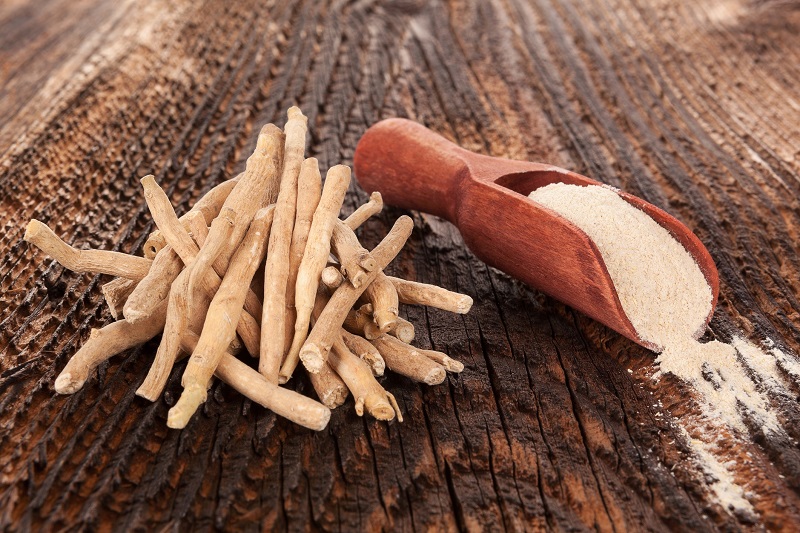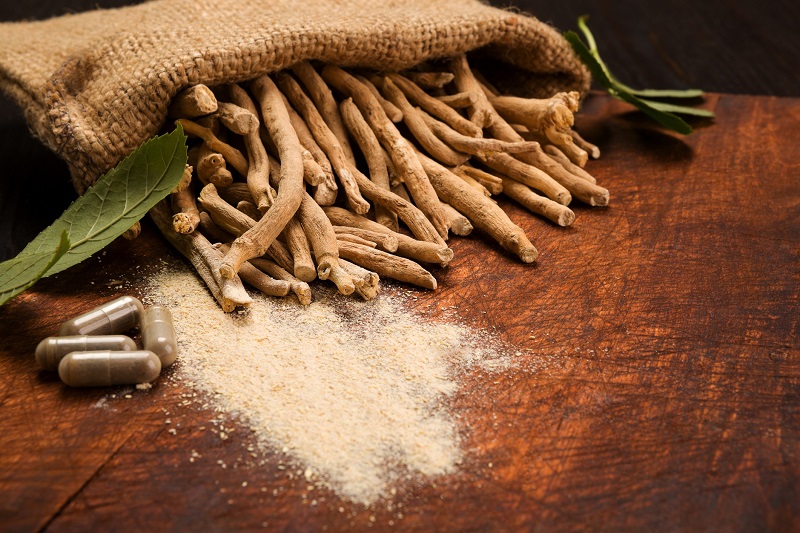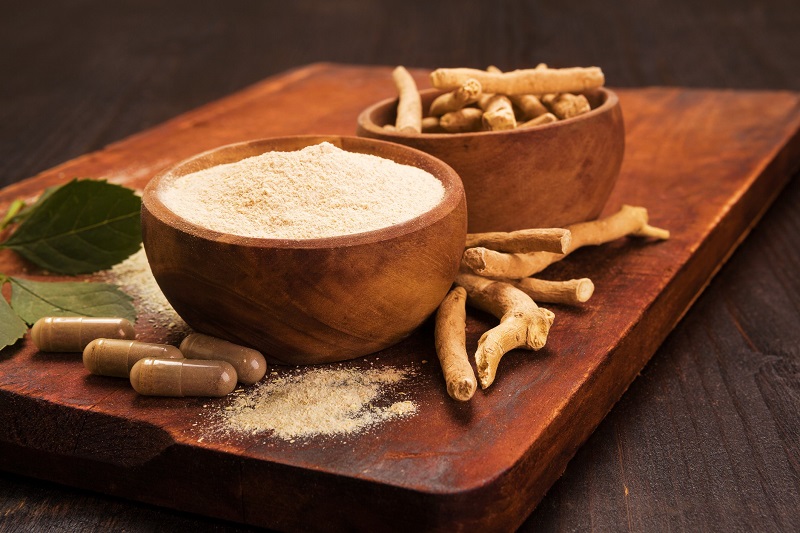All About Ashwagandha
You won’t find the herb ashwagandha in the produce aisle—you don’t cook with it—but you might find extracts of it in your drugstore supplement section.
If you’re struggling with stress—and stress eating—it might be a good idea to look for it. Studies of this herb, used in the traditional Indian medical system called Ayurveda, have found that it reduces the physical and mental symptoms of stress, including food cravings and emotional eating.
In a survey by the American Psychological Association, 38 percent of Americans say they’ve overeaten or eating unhealthy foods because of stress, most because they say—no surprise—eating distracts them from their stress.
What is Ashwagandha and What is it Good For?

Ashwagandha (pronounced aash-wuh-gaan-duh) comes from a small shrub, Withania somnifera, grown in Africa, Asia and southern Europe. Scientists have discovered more than 80 typical phytochemicals in the plant that well, basically seem to do everything. In fact, it’s an herb known as an “adaptogen,” purported to help your body deal with stressors of all kinds.
Specifically, according to scientific studies, ashwagandha extract has been shown to reduce inflammation (comparable to hydrocortisone in animal studies), have anti-cancer properties, help improve the function of the immune system, calm anxiety, ease depression, aid sleep, and protect nerve cells from damage. Stress and inflammation have both been implicated in killer diseases such as hypertension, diabetes, heart attack and stroke, and along with sleep deprivation, may contribute to overweight and obesity.
Ashwagandha and the Stress Hormone

Its stress-relieving qualities aren’t just measured by self-reports either. Several studies have found that people taking ashwagandha have lower levels of the stress hormone cortisol than people who are taking a placebo, or fake supplement. The reduction of cortisol is important because it’s the chemical your body pumps out when you’re under chronic stress.
In one study, cortisol rates dropped nearly 28 percent. Those who got the real thing also had lower blood pressures, pulse rates, and levels of C-reactive protein, a sign of inflammation found in the blood.
Ashwagandha and Your Appetite

For acute stress—that “near miss” as you’re driving home from work or the disturbing spat you have with your bestie—your body produces epinephrine (adrenaline), a chemical that revs you up to handle an immediate threat. It’s a system that evolved during a time when acute stress was stirred up by the arrival of a saber-toothed tiger or a marauding band of Neanderthals. That short-term stress hormone can actually kill your appetite. No time to eat when you’re in the middle of what passes for danger in the 21st century.
But if your stress is prolonged, your body produces cortisol which not only increases your appetite, but also your motivation to eat. It’s probably why we tend to self-medicate our anxiety with comfort foods, which tend to be high in carbs, calories and fat—all the high-energy foods to sustain us for the long haul. Some studies have shown that those foods actually do ease the physical and emotional responses we have to stress.
(Take home lesson: Don’t beat yourself up for the occasional stress binge—you’re doing it because it works. Have a list of non-food alternatives that also work—like exercise, listening to music or talking to friends.)
Ashwagandha Side Effects

Ashwagandha has very few side effects and one, drowsiness, can work in your favor if your worries keep you up at night. In a 2019 study in the peer-reviewed journal, Cureus, participants who took an ashwagandha reported feeling less stressed, had lower cortisol levels, and slept better than those who didn’t take the supplement.
Other potential side effects of ashwagandha can include nausea, headache, stomach irritation and diarrhea. Pregnant women, men with hormone-sensitive prostate cancer, and those taking certain drugs should not take ashwagandha. Talk to your healthcare provider before taking any new supplement.
The post All About Ashwagandha appeared first on The Leaf.
source https://leaf.nutrisystem.com/all-about-ashwagandha-health-benefits/
Comments
Post a Comment